- Return to sender - 20th February 2026
- Legal eagle - 19th February 2026
- Round Robin - 19th February 2026

Last week’s apology of sorts from the second richest man in the world endorses the experience of how for our Editor, Welshman Phil Parry, properly saying sorry almost never happens, and the law is often used to close down criticism.
When is an ‘apology’ an ‘apology’?
When it is a ‘clarification’ in today’s world of course – so people say what they really INTENDED, not what people thought they meant.

Thus when Elon Musk said “go fuck yourself” to advertisers after they had threatened to pull ads from his platform following an earlier alleged anti-Semitic controversy, this was actually intended as a general point on free speech rather than a comment to the wider advertising industry.
How could anyone think “go fuck yourself” was anything other than talking about media freedom?!
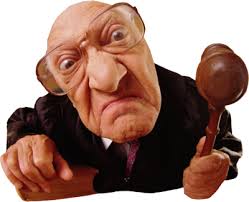
Anybody who believes otherwise may incur the litigious wrath of Mr Musk, because he has never been shy of taking legal action.
His apparent keenness to resort to the law, could, perhaps, appear incongruous set next to his emphasis on the importance of free speech.
Mr Musk’s ‘apology’ or ‘clarification’ (call it what you will), came on Wednesday at the Cannes Lions advertising festival of creativity, when he also admitted to general laughter: “I mean not every post I make is a banger”.
This is surely an understatement.


But to critics like me, Mr Musk made everything crystal clear when he declared at the festival: “It wasn’t to advertisers as a whole, it was with respect to freedom of speech, I think it is important to have a global free speech platform, where people from a wider range of opinions can voice their views”.
This had NOTHING whatsoever to do with a concern that a large amount of money might be lost if major firms boycotted X (formerly Twitter).
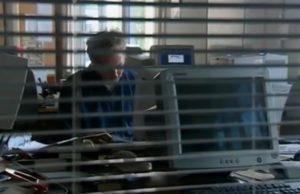
I should be struck down for allowing such an outrageous thought even to cross my mind!
Unfortunately for Mr Musk it is a fact that in the past he has never been far from controversial headlines – clarification or not.
For example, he had allegedly agreed with a post on his site that falsely claimed Jewish people were stoking hatred against white people.
He supposedly said that the user who referenced the “Great Replacement” conspiracy theory was speaking “the actual truth”.

The conspiracy theory holds that Jewish people and leftists are engineering the ethnic and cultural replacement of white populations with non-white immigrants that will lead to a “white genocide”.
Major firms including Disney, Warner Bros and Sky News’ parent company Comcast pulled their advertising. Lions Gate Entertainment and Paramount Global also said they were pausing advertising, and it has been reported that Apple was pulling ads too. IBM also halted its advertising on X/Twitter after a report by Media Matters (MM), the US media watchdog, which found that its ads were placed next to pro neo-Nazi content.

The companies decisions on advertising lay behind Mr Musk’s ‘clarification’ in Cannes last week.
These are only the latest challenges to face Mr Musk and, as I have mentioned, he has always possessed a well-known propensity to turn to the law to resolve them.
It has emerged, for instance, that Mr Musk sued MM alleging it manufactured the report showing advertisers’ posts alongside neo-Nazi content.

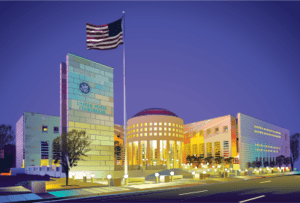
In a lawsuit filed in the US District Court in Texas, it was claimed that MM “knowingly and maliciously” portrayed ads next to hateful material “as if they were what typical X users experience on the platform”.
This came after figures last year showed that the monthly US ad revenue at X/Twitter had declined at least 55 per cent year-on-year each month since he bought it.

The company has struggled to retain some advertisers since the takeover, and the Chief Executive, Linda Yaccarino, met bank lenders who helped finance Mr Musk’s acquisition to outline the company’s business plans.
The extraordinary ‘anti-Semitic’ row and ‘clarification’, are not the first time Mr Musk has been accused of being anti-Semitic either. He has, though, always firmly denied it.

As in Cannes, he has proclaimed: “To be super clear: I am pro free speech, but against anti-Semitism of any kind“.
Yet to Mr Musk’s critics this is pure humbug because he has described George Soros (the 93 year old Jewish survivor of the Holocaust, and a frequent victim of anti-Semitic attacks), as ‘reminding him of Magneto’ (a Marvel comic villain who is also a Jewish survivor of the Holocaust).
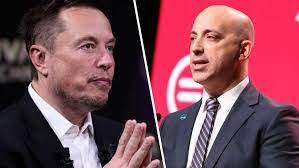
Mr Musk has also engaged in a very public spat with the Anti-Defamation League (ADL), which is a high-profile organisation opposing anti-Semitism and racism.
He has threatened the ADL with legal action, blaming it for a collapse in advertising revenue, when it could, in fact, be to do with the nervousness of companies associating with him.
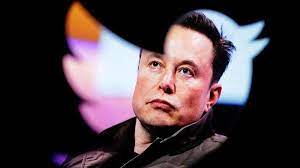
All our pieces used to be published automatically on X/Twitter as well as on Facebook, but once the anti-Semitic storm broke it was only the latter.
Of course, we were under no illusions that our stance was likely to make any difference at all – X/Twitter is still (even after leading firms pulled their advertising), a gigantic business.
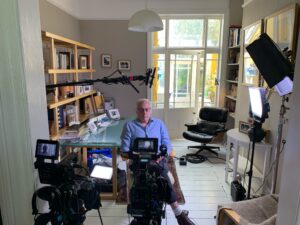
I felt it was the right thing to do, however.
The memories of Phil’s decades long award-winning career in journalism (when he always avoided making anti-Semitic comments) as he was gripped by the rare neurological disease Hereditary Spastic Paraplegia (HSP), have been released in a major book ‘A GOOD STORY’. Order it now!

Publication of another book, though, was refused, because it was to have included names.
Tomorrow – as the UK General Election (GE) heats up, he emphasises how attention should not be drawn away from other important (some highly suspect) ballots around the world.

‘Sorry is still the hardest word part three’ comes soon – when Phil acknowledges a key rule of how during that career, a proper apology for a mistake was almost never made, and more evidence today underlines this salient fact.









